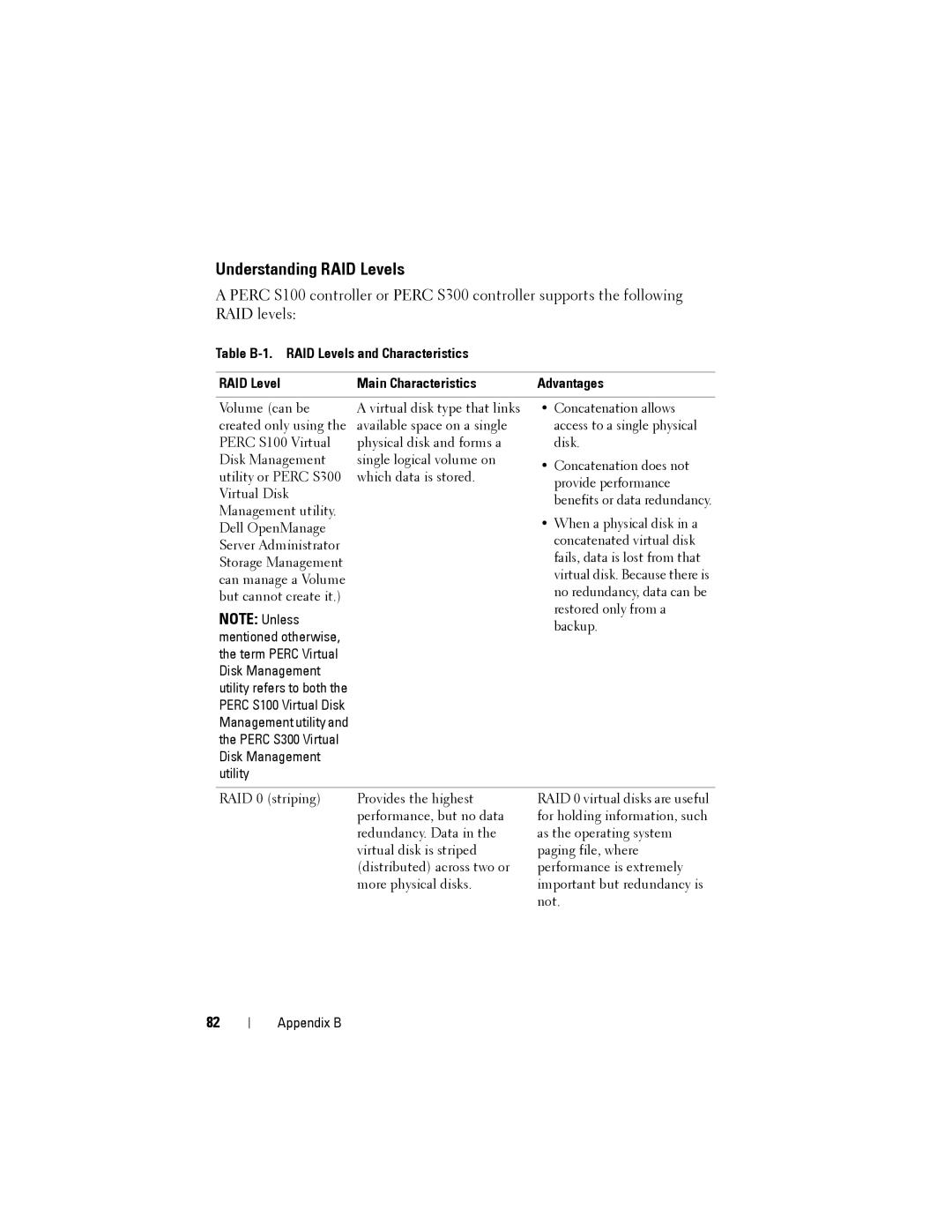
Understanding RAID Levels
A PERC S100 controller or PERC S300 controller supports the following RAID levels:
Table
RAID Level | Main Characteristics | Advantages |
Volume (can be | A virtual disk type that links |
created only using the | available space on a single |
PERC S100 Virtual | physical disk and forms a |
Disk Management | single logical volume on |
utility or PERC S300 | which data is stored. |
Virtual Disk |
|
Management utility. |
|
Dell OpenManage |
|
Server Administrator |
|
Storage Management |
|
can manage a Volume |
|
but cannot create it.) |
|
NOTE: Unless mentioned otherwise, the term PERC Virtual Disk Management utility refers to both the PERC S100 Virtual Disk Management utility and the PERC S300 Virtual Disk Management utility
•Concatenation allows access to a single physical disk.
•Concatenation does not provide performance benefits or data redundancy.
•When a physical disk in a concatenated virtual disk fails, data is lost from that virtual disk. Because there is no redundancy, data can be restored only from a backup.
RAID 0 (striping) | Provides the highest |
| performance, but no data |
| redundancy. Data in the |
| virtual disk is striped |
| (distributed) across two or |
| more physical disks. |
RAID 0 virtual disks are useful for holding information, such as the operating system paging file, where performance is extremely important but redundancy is not.
82
Appendix B
